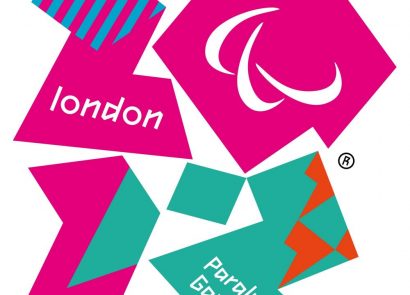We all know about cholesterol, but how much do we actually know about its impact on the body? Produced by the liver, cholesterol is in all your cell membranes and it helps to ensure your nerves function properly. It’s also required for the production of many hormones (including sex hormones like testosterone) as well as vitamin D, and brain function. So why all the fuss about lowering your levels? Read our guide to find out what our experts think.
What is cholesterol?
First things first, when it comes to cholesterol you should know that there are two different types. The two main forms of lipoprotein in the blood are low-density lipoprotein-cholesterol (LDL) and high-density lipoproteincholesterol (HDL). Traditionally, LDL has been said to be chiefly responsible for depositing cholesterol on the inside of the arteries, leading to cardiovascular diseases such as heart disease and stroke, while HDL – referred to as ‘good cholesterol’ – is associated with clearing cholesterol from here. But when it comes to bad cholesterol, you should know that like most health-related issues, it is not as simple as one specific nutrient or behaviour that causes the problems.
What are some signs of high cholesterol?
There are no visible symptoms of having high cholesterol, so taking a test is the only way to know whether it’s too high or not. It can affect anyone, so try to take a cholesterol test sooner rather than later so that you can take actions. That way, you can make small, simple switches to get your cholesterol back on track (and lower your risk of coronary heart disease).
Getting to the fats
The liver produces cholesterol from the saturated fats in our food, which is why it’s important to follow a diet low in saturated fat. This means reducing your intake of butter, hard margarines, lard, fatty meat and dairy fats. Michele Newton, author of Lowering Your Cholesterol: Top Tips & Recipes, adds: “Other foods to avoid include bought pastries, cakes, biscuits, white bread, crisps, burgers and bacon. Enjoy speciality sausages as a treat, but check that they have a high meat content (over 75 percent). Cheese should be eaten in moderation as well, although there are some good reduced fat versions available. Lean red meat should be eaten no more than twice a week and all fat must be removed. Poultry, chicken and turkey can be eaten, but again the skin must be removed.” In the past it was recommended to limit your egg consumption, however, Heart UK (the UK’s only cholesterol charity) says: “For most people, the amount of saturated fat they eat has much more of an impact on their cholesterol than eating foods that contain cholesterol, like eggs and shellfish. So, unless you have been advised otherwise by your doctor, eggs can be included as part of a balanced and varied diet.”
5 ways to cut your cholesterol
Lowering cholesterol isn’t as tricky as you might think. Making a few simple tweaks to your everyday routine can make a huge difference and provide the foundations for a healthier you, says Corrine Toyn, healthcare professional at Benecol.
- Snack more mindfully
So many of us snack throughout the day without even noticing we’re doing it. Be more intentional with your snacking, and question what you’re putting in your mouth before doing so. Stick to lowcholesterol alternatives where possible.
- Take it easy on the booze
We all know that excessive drinking can be harmful, but it can sometimes be tricky to cut down. Try setting a limit and a budget at the start of each week, and stick to it, and think about introducing a few alcohol-free days.
- Set yourself a daily routine (and stick to it!)
As much as possible, try to do the same things at the same time each day. Wake up at the same time, eat breakfast, do some exercise. We know it’s impossible to control all the timings in your life, but where you can, it’ll make a big difference.
- Switch up your cooking oils
We all need some form of fat in our diet, however it’s important to get the balance right in order to maintain healthy cholesterol levels. One switch might include opting for unsaturated fats when you’re cooking, and using oils from vegetables, nuts and seeds.
- Keep a close eye on the waistline
Drastic diets are never a good option, but an expanding waistline – especially around the middle – could indicate rising cholesterol, so being mindful of this can be really beneficial in the long-run.
“There are things you can do and eat to improve it”
One person who knows what it’s like to have high-cholesterol is TV presenter and fitness-lover Davina McCall. Here, she describes how she found out she had high cholesterol and how she’s changed her lifestyle to live a happier, healthier life…
“I discovered I had high cholesterol when I got a routine blood test check-up in my 20s. I nearly fell of my chair in surprise. I always thought it was something that affected old people, or people who were just about to have heart attacks. In your 20s you feel quite invincible, and at the time I thought of myself as quite healthy. I was 28 years old; I ate well and I was fit. It didn’t cross my mind that I would have something like that and I actually met someone the other day who was 24 when they found out they had it. But there are things you can do, and eat, to improve it. Benecol have loads of products out there to help lower your cholesterol.
After finding out about my levels, I changed the things I ate – I ate a lot fewer animal fats and I followed more of a Mediterranean diet. I went for a Benecol yoghurt instead of a normal yoghurt, and I now have a blood test every six months. I’m quite proud of myself, because I’ve lowered it through sensible eating and exercise. It’s not a death sentence when you get it, but you need to know about it. It’s something I will have to monitor for the rest of my life, but it’s worth it!”





















